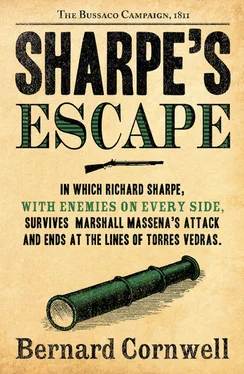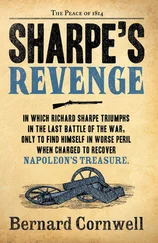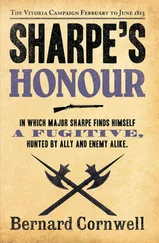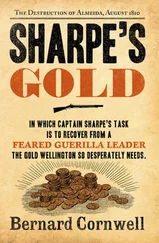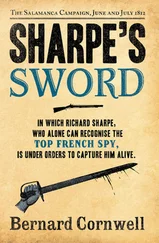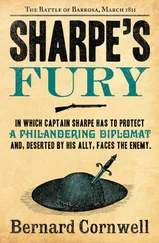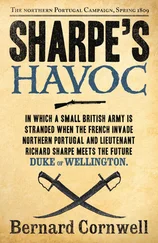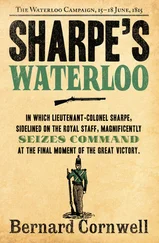There were eighteen thousand men in the four columns. If those men had been paraded in a line of three ranks, which was how the French made their lines, they would have stretched for two miles, but instead they had been concentrated into the four tight columns. The two largest led the attack, while the two smaller came behind, ready to exploit whatever opening the first two made. Those two larger columns had eighty men in their front ranks, but there were eighty more ranks behind and the great blocks made two battering rams, almost two miles of infantry concentrated into two moving squares that were designed to be hammered against the enemy line and overwhelm it by sheer weight. ‘Stay close!’ the sergeants shouted as they began to ascend the ridge. A column was no good if it lost cohesion. To work it had to be like a machine, every man in step, shoulder to shoulder, the rear ranks pushing the front rank on into the enemy guns. That front rank would probably die, as would the one behind, and the one behind that, but eventually the impetus of the massive formation should force it across its own dead and through the enemy line and then the real killing could begin. The battalions’ drummers were concentrated at the centre of each column and the boys played the fine rhythm of the charge, pausing every so often to let the men call out the refrain, ‘ Vive l’Empereur! ’
That refrain became breathless as the columns climbed. The ridge was horribly steep, lung-sapping, and men tired and so began to lag and stray. The fog was still thick. Scattered gorse bushes and stunted trees obstructed the columns which split to pass them, and after a while the fragments did not join up again, but just struggled up through the silent fog, wondering what waited for them at the summit. Before they were halfway up the hill both the leading columns had broken into groups of tired men, and the officers, swords drawn, were shouting at the groups to form ranks, to hurry, and the officers shouted from different parts of the hill and only confused the troops more so that they went first one way and then the other. The drummer boys, following the broken ranks, beat more slowly as they grew more tired.
Ahead of the columns, way ahead, and scattered in their loose formation, the French skirmishers climbed towards the light. The fog thinned as they neared the ridge’s top. There was a swarm of French light troops, over six hundred voltigeurs in front of each column, and their job was to drive away the British and Portuguese skirmishers, force them back over the ridge top and then start shooting at the defending lines. That skirmish fire was designed to weaken those lines ready for the hammer blows coming behind.
Above the disordered columns, unseen in the fog, the Eagles flew. Napoleon’s Eagles, the French standards, the gilt statuettes shining on their poles. Two had their tricolour flags attached, but most regiments took the flags off the poles and stored them at the depot in France, relying on the Emperor’s Eagle to be the mark of honour. ‘Close on the Eagle!’ an officer shouted, and the scattered men tried to form their ranks and then, from above them, they heard the first staccato snapping as the skirmishers began their fight. A gun fired from the valley, then another, and suddenly two batteries of French artillery were firing blind into the fog, hoping their shells would rake the defenders at the ridge top.
‘God’s teeth!’ The exclamation was torn from Colonel Lawford who, peering down the slope, saw the horde of French skirmishers break out of the fog. The voltigeurs far outnumbered the British and Portuguese light companies, but those redcoats, cazadores and greenjackets fired first. Puffs of smoke jetted from the hillside. A Frenchman twisted and fell back and then the voltigeurs went down onto one knee and aimed their muskets. The volley splintered the morning, thickening the fog with powder smoke, and Sharpe saw two redcoats and a Portuguese go down. The second men of the allied skirmishing pairs fired, but the voltigeurs were too numerous and their musket fire was almost continuous and the red, green and brown jackets were falling back. The voltigeurs advanced in short rushes, at least two of them for every allied skirmisher, and it was plain the French were winning this early contest by sheer weight of numbers.
Lieutenant Slingsby and the South Essex light troops had deployed ahead of the battalion and now found themselves on the flank of the French advance. Ahead of them was mostly empty hillside, but the voltigeurs were thick to their right and for a few moments the company was able to stand and drive in that enemy flank, but a French officer saw what was happening and shouted for two companies to chase the redcoats and greenjackets away. ‘Back away now,’ Sharpe muttered. He was mounted on Portia, Slingsby’s horse, and the extra height gave him a clear view of the fight that was some three hundred paces away. ‘Back off!’ he said louder, and the Colonel gave him an irritated look. But then Slingsby understood the danger and gave eight whistle blasts. That told the light company to retreat while inclining to their left, an order that would bring them back up the slope towards the battalion, and it was the right order, the one Sharpe would have given, but Slingsby had his blood up and did not want to fall too far back too soon and thus yield the fight to the French and so instead of slanting back up the hill as he had ordered he ran straight across the slope’s face.
The men had started back up the ridge, but seeing the Lieutenant stay lower down, they hesitated. ‘Keep firing!’ Slingsby shouted at them. ‘Don’t bunch! Smartly now!’ A ball struck a rock by his right foot and ricocheted up to the sky. Hagman shot the French officer who had led the move against the South Essex and Harris put down an enemy sergeant who fell into a gorse bush, but the other Frenchmen kept advancing and Slingsby slowly backed away, yet instead of being between the French and the South Essex he was now on the enemy’s flank, and another French officer, reckoning that the South Essex’s light company had been brushed aside, shouted at the voltigeurs to climb straight up the hill towards the right flank of the South Essex line. Cannon opened fire from the ridge top, shooting from the left of the battalion down into the fog behind the voltigeurs. ‘They must have seen something,’ Lawford said, patting Lightning’s neck to calm the stallion, which had been frightened by the sudden crash of the six-pounders. ‘Hear the drums?’
‘I can hear them,’ Sharpe said. It was the old sound, the French pas de charge , the noise of attacking Eagles. ‘Old trousers,’ he said. That was the British nickname for the pas de charge .
‘Why do we call it that?’
‘It’s a song, sir.’
‘Do I want to hear it?’
‘Not from me, sir. Can’t sing.’
Lawford smiled, though he had not really been listening. He took off his cocked hat and ran a hand through his hair. ‘Their main body can’t be far off now,’ he said, wanting the confrontation over. The voltigeurs were no longer advancing, but shooting at the line to weaken it before the column arrived.
Sharpe was watching Slingsby who, seeing the French turn away from him, now seemed momentarily bereft. He had not done badly. All his men were alive, including Ensign Iliffe who, when he had returned Sharpe’s sword, had been pale with nervousness. The boy had stood his ground, though, and that was all that could be expected of him, while the rest of Slingsby’s men had scored some hits on the enemy, but now that enemy climbed away from the company. What Slingsby should do, Sharpe thought, was climb the hill and spread his men across the face of the South Essex, but just then the first of the columns came into view from the fog.
Читать дальше
